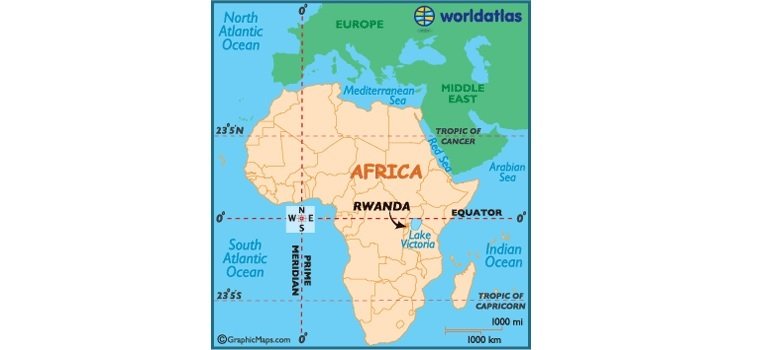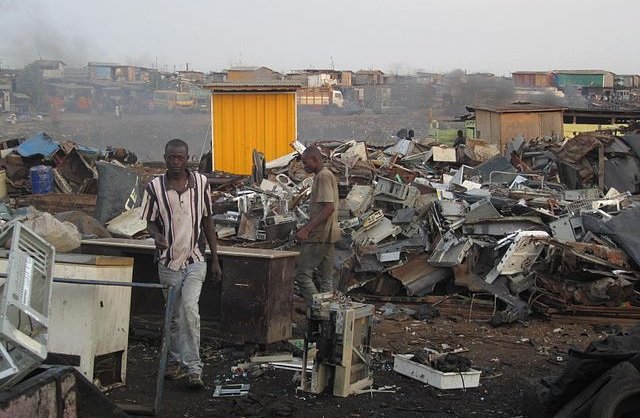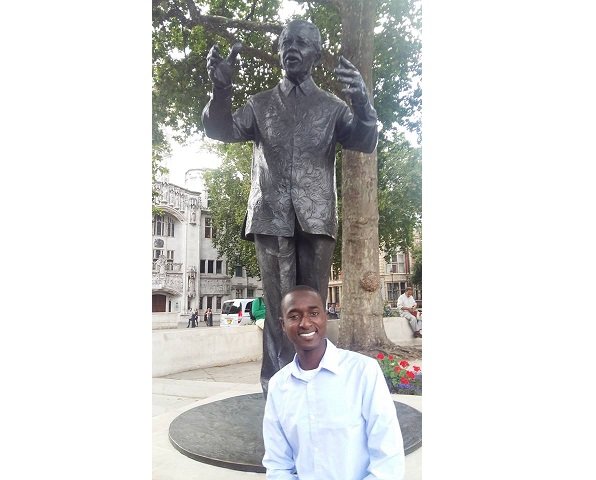From ‘mayibobo’ to Harvard, Justus Uwayesu talks about the power of education.
What were you doing when you were nine? For me, it was things utterly unexceptional. Mostly walks to the library and trips to the park, absolutely nothing out of the ordinary.
For Justus Uwayesu, he was fighting for his life on a rubbish dump. Listening to Justus’ story about his childhood, you can’t help but feel humbled by the safety of our Western world.

Justus was born in Rwanda in 1991. At least that’s what his passport says. He can’t be sure of his date of birth; he wasn’t born in a hospital and his parents couldn’t read or write to keep records. Living in a small village, with a two hour walk to get water, it can seem like the typical devastating story of poverty that we have all desensitised ourselves to.
Orphaned in Rwanda
But in 1994, Justus life took an unexpected turn. Genocide against the Tutis erupted lasting 100 days and his parents were two of the 800,000 people brutually murdered in the violence.
So at three years old, Justus and his baby sisters were rushed from their small, rural village to a Red Cross Refugee camp by his teenage brother, where they lived for three and a half years with tens of thousands of other orphans. “Some of my most vivid memories are of wounded children screaming and crying for their parents,” recalls Justus. “Thank God for the Red Cross, as most of the world had turned a blind eye.”
The Red Cross Refugee camp was over-run and food, water and medicine was limited, so Justus and his siblings were moved back to their village to live with the wife of their missing uncle, in their parents' house. “For a while, we lived off the crops my parents had planted on their large farm. We ate from avocado and papaya trees. I taught myself to fish”. But this didn’t last long. A year later came a drought and famine. Justus and a friend walked 50 miles to Kigali in search of food.
Living in a dump
When Justus’ hunt for food came up short, he had to resort to child labour. “I tended an old man’s cows and lived off the land. But after nine months of promising to pay me but never giving me a franc- I left”. He went in search of his older brother, who he found in an orphanage. “There was no room for me and the Red Cross refugee camp was gone. I had nowhere to go, so I ended up living in a garbage dump”.

For the next year and a half, Justus called the shell of a burnt out car home. His days were spent begging for food and clothes to keep him warm at night. “Whilst some kids worry about a monster under their beds, I spent nights terrified that a tiger rumoured to roam the dump would attack me.”.*
Mama Clare
Justus had only one dream, “I wanted to be just like the kids I saw on the streets dressed in uniforms on their way school.”
Little did nine-year-old Justus know that someone was coming for him. In 2001, Justus remembers a white taxi driving up to the dump. “A woman got out of the car, her arms loaded with bread. She said ‘Come with me, I will help you.”
That woman was Clare Effiong, found of Esther’s aid, a small charity set up to help children through education. A former diplomat working for the UN, Effiong left her comfortable lifestyle to go to Rwanda and help children left behind seven years after the genocide had taken place.
On her first trip, using leave from her day job, she arrived with suitcases stuffed with clothes to distribute.
“By that time, we were already calling her ‘Mama Clare’”. When she returned for a second time, with an 18-foot shipping container of food and clothing, she found Justus. “The other kids asked for money but I told her I wanted to go to school”. “There in an instant, my life changed forever by asking for one of the most basic human rights of all: education”.
Seven United
That could easily be the end of Justus’ story. We could assume that Justus made it through school eventually, learning to read and write.
But it isn’t. By 2008, Justus was a high school student at College Saint-Andre. Academically, he was top of his class, having learnt French and spending all of his time engrossed in homework. He remembers one classmate that stood out from the rest.
“I had a classmate everybody made fun of. We called him 'indongo', which means dirty. He rarely washed his school uniform and most of the time did not wash himself either. It took me days to realise that he wasn’t lazy”.
Justus’ classmate was one of many poor students that could barely afford to stay in school. Education isn’t free in Rwanda. “I felt ashamed. We had been in the same class for three months, but all I could do was to smile and walk away each time he was being mocked. I decided I had to do something for him.”
Justus brought together two classmates and asked them to work with him. Every week they would give their classmate some of their school materials like soap, toothpaste and notebooks. But demand outweighed the supply, with children across the school struggling.
So from three classmates, Justus expanded the group to seven and started ‘Seven United for the Needy”. The group would meet together to plan ways to raise awareness of the needs of children and to raise funds.
Today

Seven years later, Seven United is a youth-led non-profit organisation in Rwanda with an aim of advocating for poor children and helping them access education. And they are looking to expand, “maybe here in London, or my new hometown of Boston, USA” say Justus.
Boston is where Justus is undertaking his second year at Harvard. He aspires to read Economics and eventually move back to Rwanda to make a difference.
Listening to his story, it’s incomprehensible the energy that Justus has for change. His life in just a few years has taken so many turns; you wouldn’t blame him if he wanted an easy life.
But Justus doesn’t see it that way “I was the forgotten child, but thanks to one person who through the filth and smells of Kigali dump saw my potential, I am now in a position to help others.”
*(Justus now knows that tigers don’t roam in Africa)
Want to hear more about this amazing story? Click here to listen to Justus tell his story in his own words in London.
Seven United UK is looking for schools to host youth-led associations to link with its work in Rwanda. For more information contact Seven United’s UK officer, Sam Rushworth on Samuel_Rushworth@hotmail.co.uk